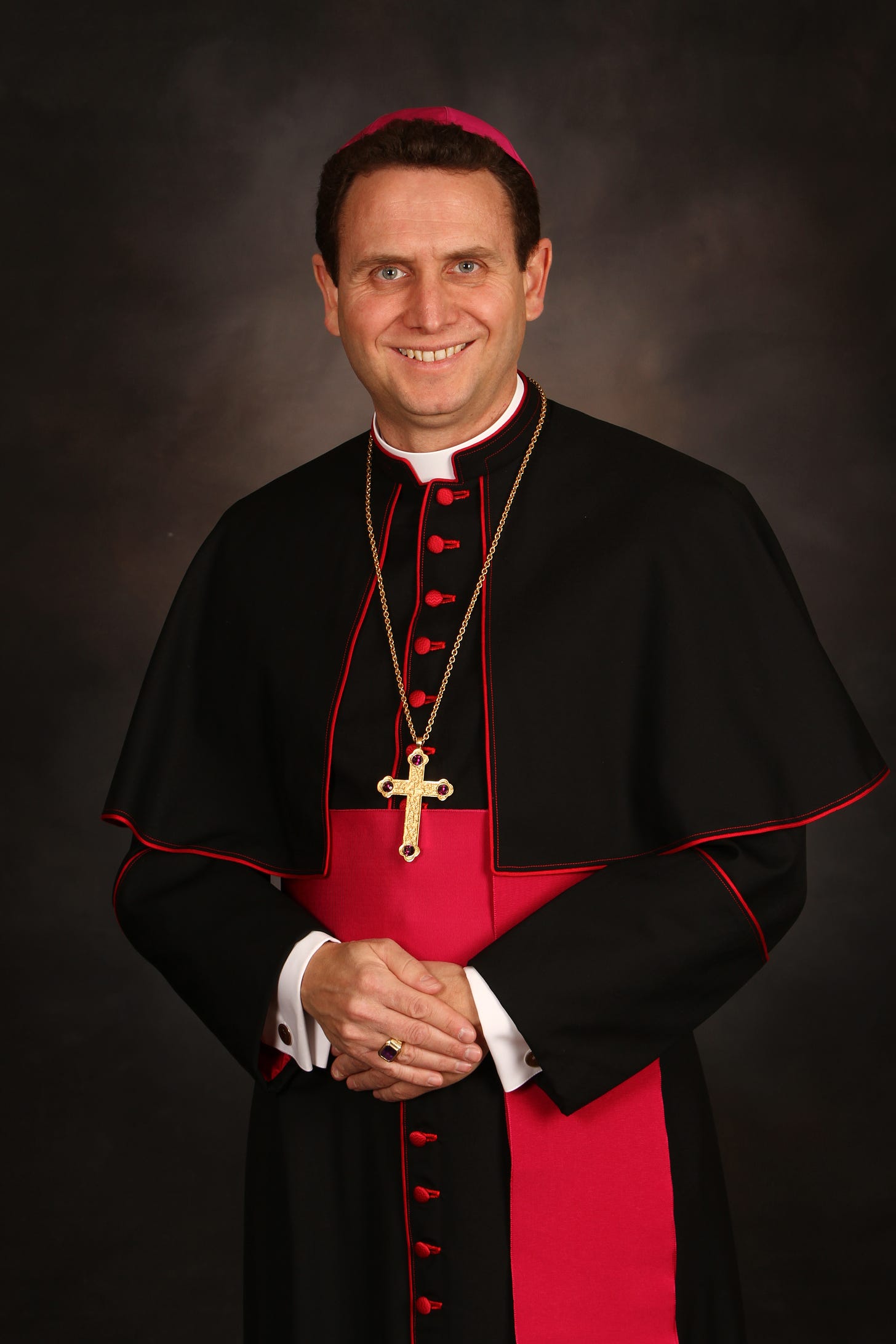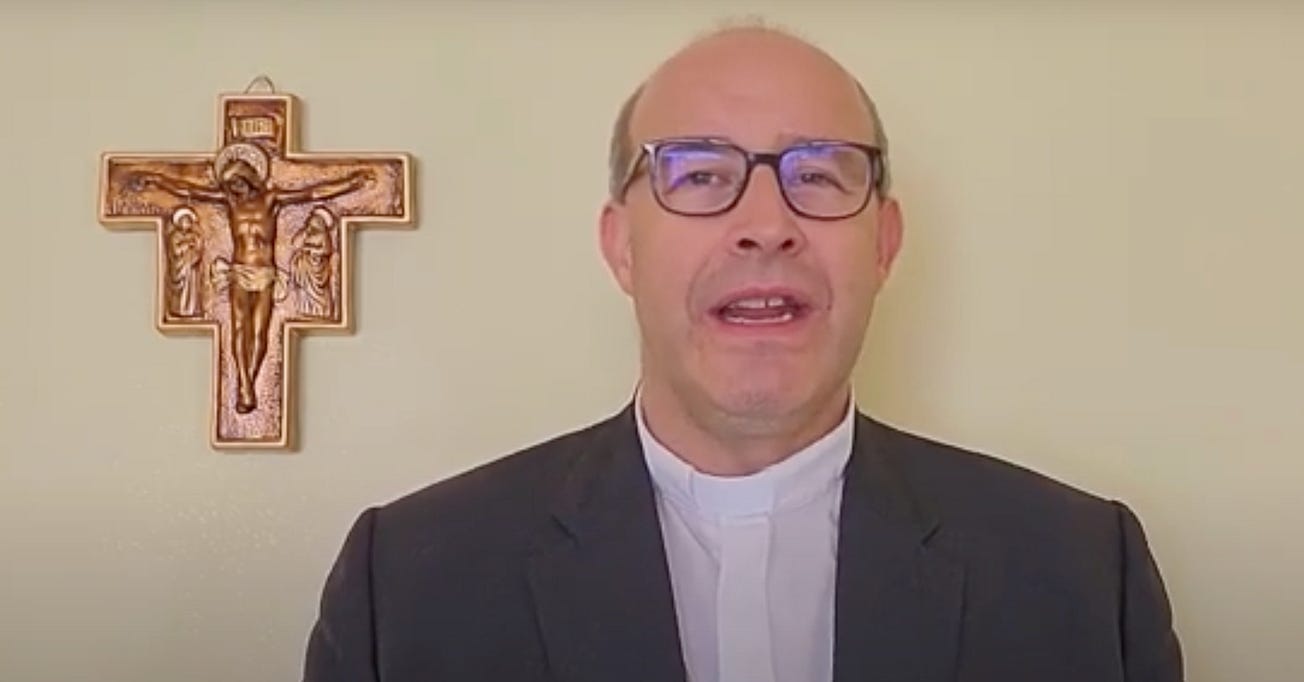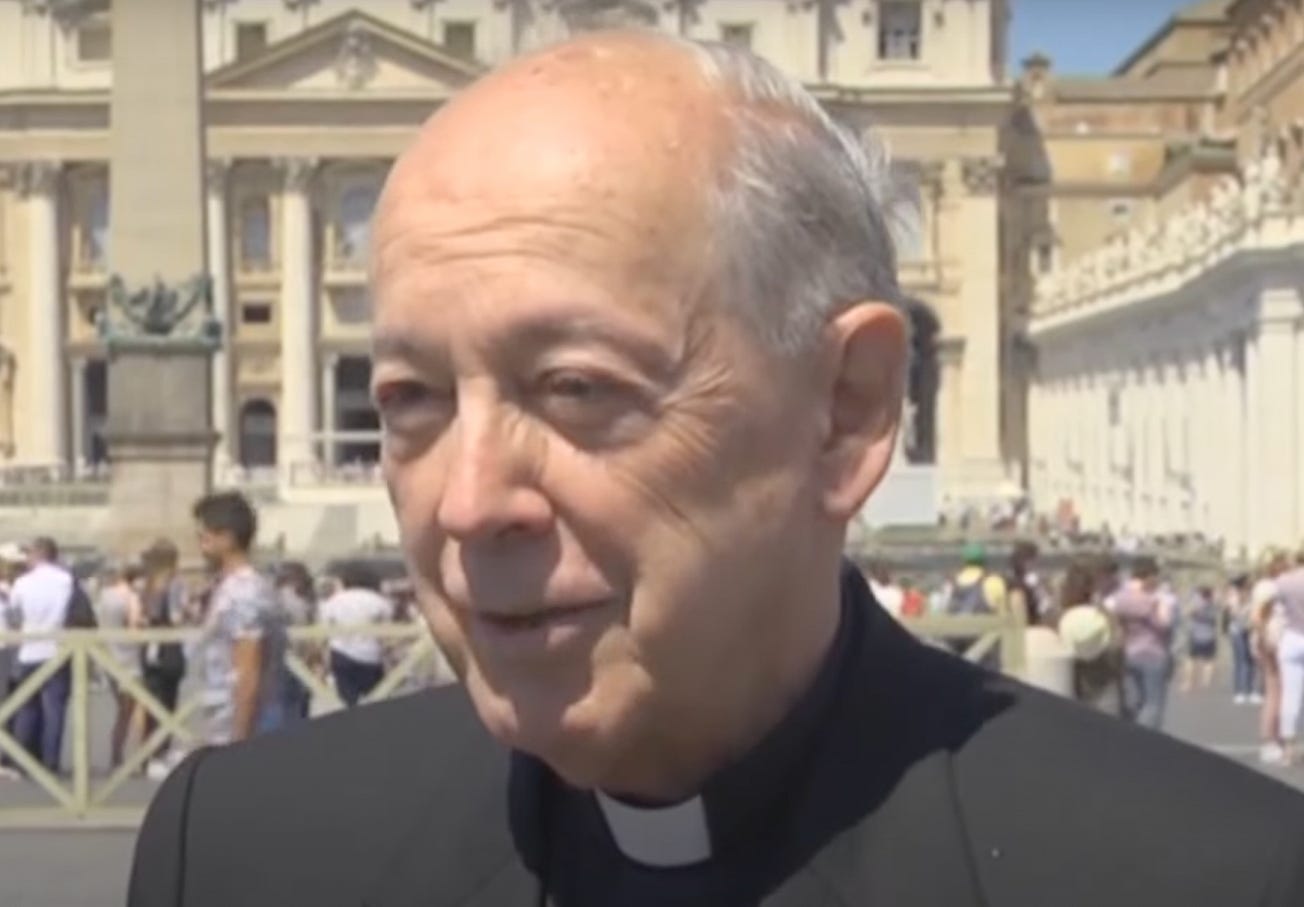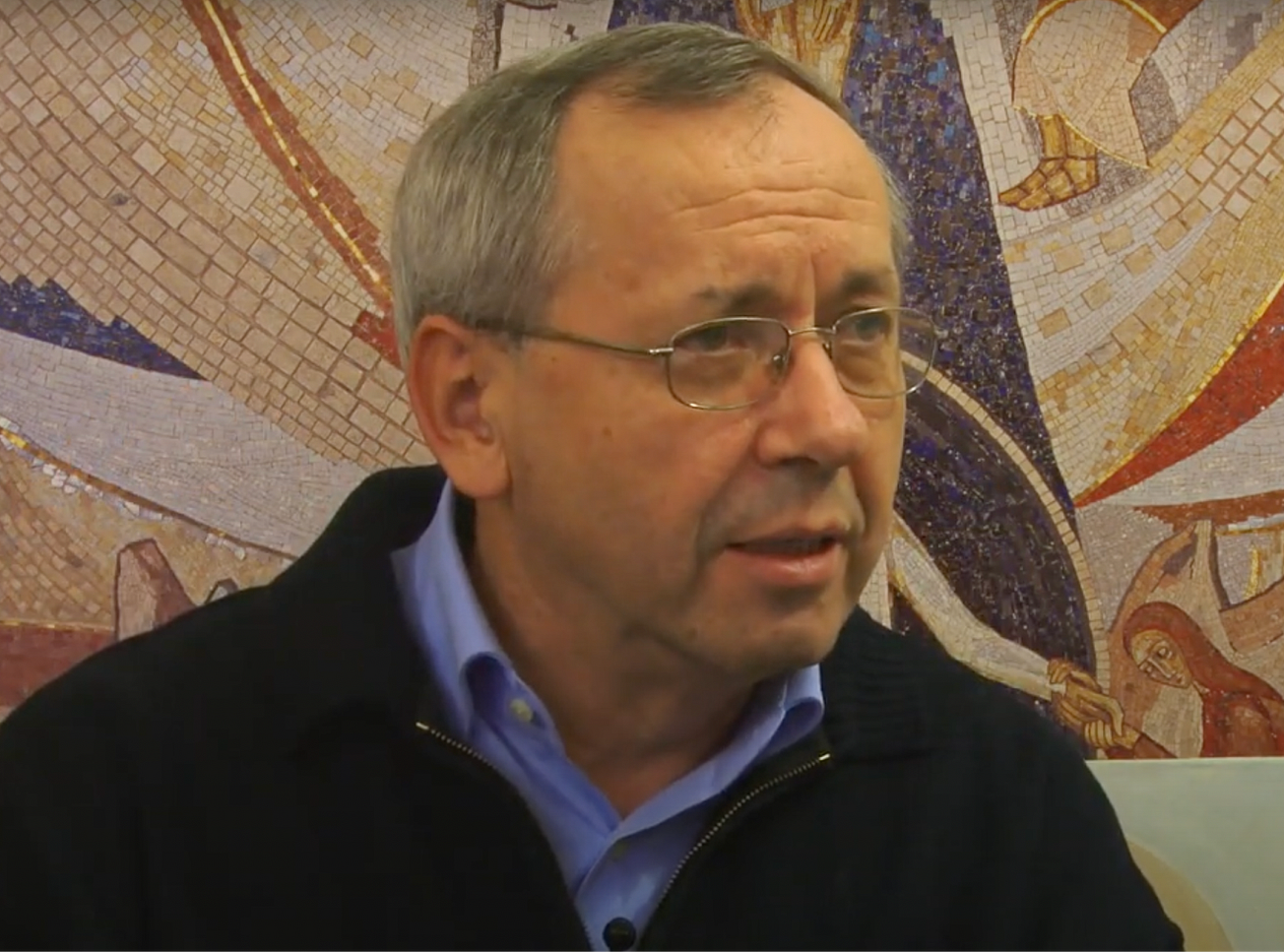During the USCCB’s spring virtual assembly this week, Bishop Andrew Cozzens will give a presentation to U.S. bishops on a proposed “Eucharistic revival” project that would aim to increase devotion, love, and belief in the Eucharist, through collaboration with parishes, dioceses, schools and universities, religious institutes, and ecclesial movements.
Cozzens, auxiliary bishop of St. Paul and Minneapolis and chair of the USCCB’s evangelization and catechesis committee, talked with The Pillar June 15 about the project.
This interview has been edited for length and clarity.
Bishop, thank you for talking with us about this project. To start things off, I’m struck by the name of this project. “Revival” is not an ordinary part of our Catholic lexicon. It’s more often a Protestant word, or perceived that way. Why is it the right word here? What does it convey?
Revival conveys the bringing back to life of our Catholic expression of the Eucharist.
The theme of the revival is from John 6:51, “my flesh for the life of the world.”
We’re experiencing the world pandemic, where life is precious, and the real answer is the life of Jesus, which he shares with us through the Eucharist. So the revival aims at bringing something back to life.
And I think that's actually the sense — it’s like we have this real concern that because of a lot of things, but also because of COVID, that some people have forgotten that Eucharist is our life, or never knew it. And we need to bring that back to life, you know?
I like the idea of a revival because it brings to mind a fire. And that’s the way I see this: We want to light a fire. The scripture passage that keeps coming to me is: “And I, when I am lifted up from the earth, will draw all people to myself.” [John 12:32]
What is the model of this project? Is there one program or liturgy at the center of this, or is the aim to encourage different kinds of Eucharistic projects organized by different groups and parishes, and dioceses?
The latter. We want everyone to do their part, and we want there to be a sense of participating in this large movement, which is a revival the bishops are organizing. But we don't intend at all to try to control it, because seeing different expressions of faith — that's kind of the beauty of the Eucharistic faith of the Church.
So, for example, we're working with the charismatic renewal, and we want them to do Eucharistic holy hours and have healing Masses and all kinds of things. And we're also going to be working with liturgical musicians, who we hope will revive the beauty of our liturgical music tradition. So we expect that everybody will bring their part, in their charism and identity, and it doesn't have to be one way in one in every diocese.
So the basics of the project are to look at a three-year period of revival. We’re looking at the possibility of a national event, for which we’d have to get approval from the bishops in November. But we’re hoping to affect the Church at every level: the diocesan level, the parish level and the national level.
What we're going to do is propose activities and invite participation and therefore try to create a movement that happens at all levels.
I have been struck, over and over again, by the image of Pope Francis offering his Urbi et orbi blessing last March, at St. Peter’s Square, in the wind and the rain, holding a monstrance and asking for God’s intercession. What does that moment say about the Eucharist and the Church?
That moment shows that understanding that Eucharist is not just a matter of catechesis.
And one of the things we want to encourage is to make sure that we have good catechesis. Because we know we haven't always had that. But we want to encourage what we would call experiential encounters with Jesus in the Eucharist.
And in particular, anyone who's been a part of youth ministry in the past 10 years understands the power of Eucharistic adoration for young people, and for their conversion, and their experience of Jesus.
That moment was a great example of the Holy Father providing a Eucharistic encounter for the whole Church, you know?
And this is why I love national events, because I think they can provide those kinds of encounters in ways that others events can’t.
I was at World Youth Day in Panama [in 2019] and they had adoration in a field, and there were several hundred thousand people there. There were moments — long moments, 15 minutes sometimes — where everybody was silent.
300,000 people silent before the Lord.
And then there were other moments where they had people from different vocations come out, and sing a song to Jesus in the Blessed Sacrament: They had families do this, consecrated women do that, their priests do that. And it was a very moving encounter with Jesus and Eucharist to be together in that way before the Lord.
Those are the sort of things we want to help use as part of the revival.
So how did the idea for a “Eucharistic revival” project begin to take shape at the conference?
So it started when the Pew numbers came out in 2019, which showed a record low belief in the real presence of Jesus in the Eucharist amongst Catholics.
I think it was around 30% [of surveyed Catholics who said they believe Catholic doctrine on the Eucharist].
The bishops were disturbed by that. And there was a lot of conversation at the November 2019 meeting about doing something about that. And Bishop [Robert] Barron [then chair of the USCCB committee on evangelization and catechesis] had proposed the idea of a Eucharistic revival, and he got about 10 committee chairs together in January of 2020 — before COVID — to talk about this.
Bishop Barron was scheduled to present on this at the June 2020 meeting, which got cancelled because of COVID. And then he was not able to present at the November 2020 meeting because it took place over Zoom and most of the scheduled presentations weren’t able to be put on the agenda, and so we instead held regional discussions about in November 2020, and there was a lot of support among the bishops.
A lot of bishops said that especially now, in light of COVID, and this great concern about whether people would come back to the Eucharist, that it was Providential that we were already planning this.
I became chair of the evangelization committee, and I started doing a lot of work on the project this spring. We have a bishop’s advisory committee that’s been meeting every month, and then I’ve been meeting with thought leaders and others.
The exciting thing is that almost everybody I talk with gets it immediately, and sees the importance of this movement to help revive Eucharistic faith. And to me it’s a sign that the bishops see the idea of Eucharistic coherence in a much larger context, which is that we know we actually have to renew faith in the Eucharist among all of our Catholic people. So there's a desire to have a movement that would affect the church at every level in order to do that.
The beautiful thing has been the partnerships. You might have seen that last week, both Archbishop Lori and Patrick Kelly, the Supreme Knight of the Knights of Columbus, spoke to state deputies of the Knights, and they said this Eucharistic revival will be a major priority for the Knights of Columbus over the next three years. So that’s just one example of a very large national organization that sees the gift of this. And I’m getting the same response from youth movements in the Church, whether it’s NCYC, or FOCUS, or St. Paul’s Outreach, or whatever it is.
And it’s a beautiful thing because Christ is actually the thing that unites us sacramentally and existentially. And so it’s a great opportunity for us as a Church in the United States to be united around what’s the most important.
Can you speak to the connection between Eucharistic devotion, even Eucharistic adoration, and the Mass itself?
So, of course, the source and the summit of our life is the celebration of the Eucharist, where we participate in Jesus's perfect act of worship to the Father, which he did on the Cross.
And as everything in the Christian life there is this responsive giving and receiving. So when we participate in the Mass, he gives us back resurrected life. It gives us back the resurrected Jesus. And for people to fully receive the love of the Lord, they need to come to understand that.
And as Saint John Paul II often said, and others, the Mass itself is not enough time to fully receive the gift of the Eucharist. That's why we need times of adoration.
But we also want to show in this that a life lived in service and a life lived in self-gift is essential to a Eucharistic life.
When Mother Teresa said that you can't love Jesus in the Eucharist if you don't love him in the poor, she was expressing a theological truth about encountering Jesus. When I really encounter Jesus in the Eucharist, then I encounter him in my neighbor and I encounter him in the people around me, and I encounter him in the unborn child. And I encounter him in the poor person, and the homeless person, and in the person who disagrees with me.
And so Eucharistic faith, when it's really lived, can and should, as Pope Francis has made clear, flourish in a life of service.
We’re in a period in which people are experiencing the fruit of Eucharistic devotion: how it increases my love, and then how that changes me, and then how that changes the world.
Spending time in adoration has an effect on my soul. A profound effect. Mother Theresa insisted that the most important thing she did in her community was to establish a daily Eucharistic holy hour of adoration every afternoon. And that was centrally important to giving the sisters the strength they needed to go out and serve the poor in radical ways, you know?
What would success look like for this project?
Our goal is to create Eucharistic missionaries. We need to remember the gift, and reverence the gift, and we need to recall what a great gift it is. And so if the Church in the United States over the next three years could say that we actually focused on this and recalled this great gift and we've come to understand our need to be missionaries of this message.
If all practicing Catholics were somehow affected by this, or strengthened in Eucharistic faith and then had a sense of the missionary conversion that's needed, that would be success.
It sounds like some of this is sowing seeds, and waiting to see how God’s providence will bring them to fruition. Is that a fair approach to this project?
Absolutely. It seems to be Jesus’ method. So if we plant a few seeds and we don’t get to see all of them grow, we can trust. But of course that doesn’t mean that we won’t talk to data analysis people, and marketing people, and be thoughtful about how best to do this wisely and well.
I know that you consulted with many Catholics — and in the interest of full disclosure, I was one of them. But you consulted with many people wiser than I am. What did you hear consistently from those consultations?
One- “This is really needed.”
Two — “I want to be a part of it” — It was amazing to hear that.
Three — “If you rely simply on parish and diocesan structures, it will fail. Because they’re just overtaxed.” And so we want to work with movements and involve a very broad network of people at every level.
And one of the other things we heard is that this is a privileged moment for the Church. Coming out of the COVID, there’s a unique moment here, and let’s seize that moment.
Of course, the Eucharistic discussion that will garner most of the attention at this week’s USCCB meeting is not this one, but the discussion about the notion of “Eucharistic coherence.” How does this Eucharistic revival project relate to that discussion?
The revival is going after the deeper issue of Eucharistic coherence. That means we need to make sure that our teaching on the Eucharist and all that means — including “Eucharistic coherence” — is clearly understood by our people.
Nobody wants to be in the situation where we have prominent Catholics who aren't living Eucharistically coherent lives. And so what we want to do is a broad-based movement of Eucharistic renewal and revival.
The bishops I talk with know that renewal always begins with self-examination. So each of us — starting with the bishops — need to revive our own faith in the Eucharist and make sure that we're living Eucharistically coherent lives. Because the Eucharist makes demands on all of us. It has to begin with us. It has to begin with Catholics in the pew. And from there, we can go out to help bring forth this renewal.
What role does the Eucharist play in your own spiritual life, and your own formation and growth as a Christian?
Even as a young kid, serving Mass, the source of my vocation was kneeling close to the altar and recognizing Jesus's presence on the altar and realizing I wanted to be close to him.
I wanted to be close, and I wanted to be close to him for my whole life. And I began to realize that that was the essence of a priestly vocation.
And so at a certain point that blossomed into participation at daily Mass. And then of course the great privilege to celebrate the Mass every day, which every priest comes to realize — or should come to realize — is the central moment of his day.
I try to live that way, so that the Mass is the central moment of my day.
I've always loved the line from Cardinal Ratzinger, who preached a homily at an ordination where he talked about the great privilege a priest has to hold the Eucharist in his hands every day. And he said that if you will entrust yourself to Jesus in the Eucharist every day, if you will celebrate Mass with reverence every day, then the Eucharist will transform you. It will change you because it's too powerful not to.
And he said that either we shake off the Eucharist with all of its demands it makes upon us, or we cling to it with everything that we are, and it gradually pulls us along with him. And that's certainly become the heart of my own spirituality. It's why I spend a daily holy hour in adoration as well — I know that by being with him, he's going to more and more transform me into himself.






